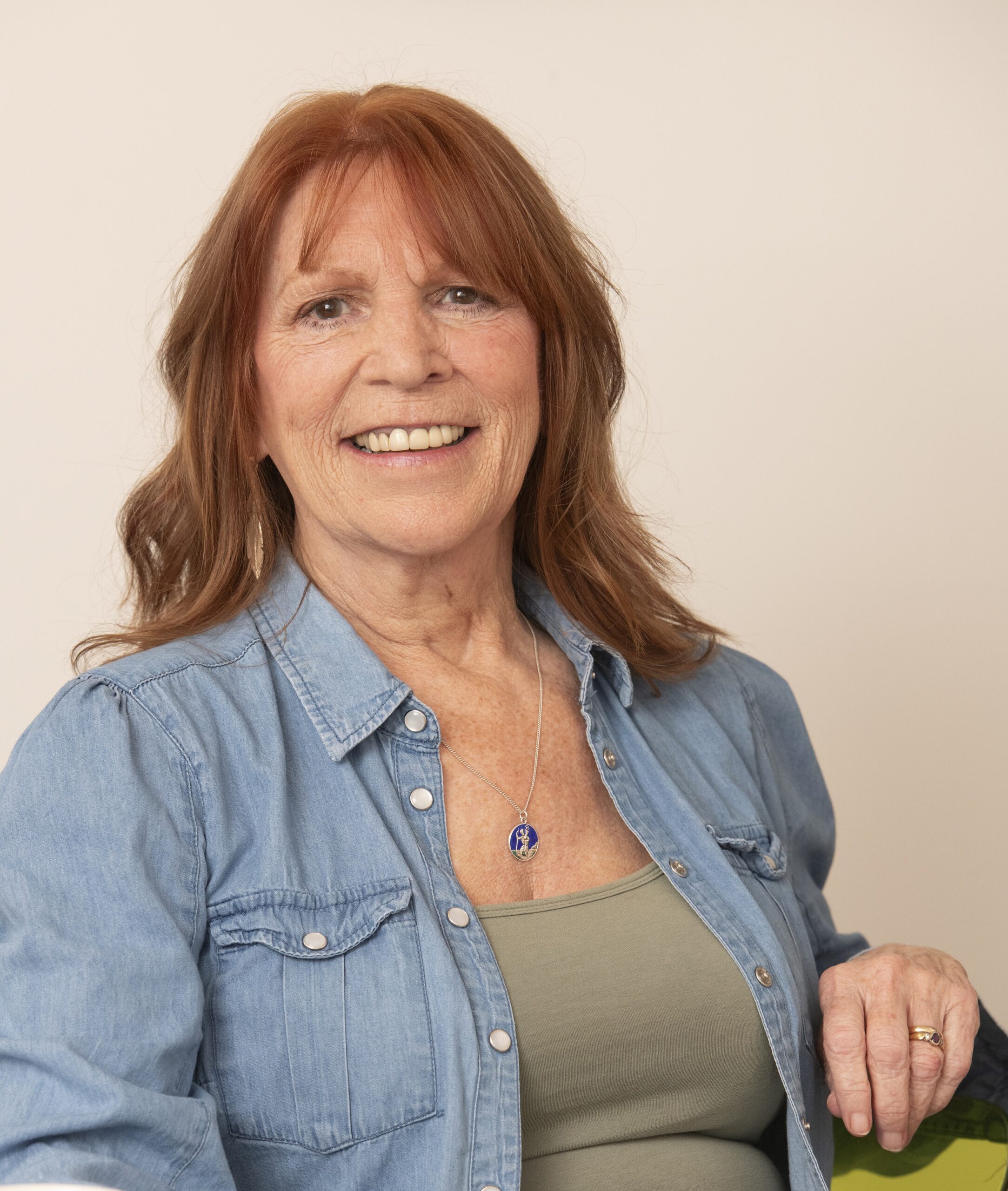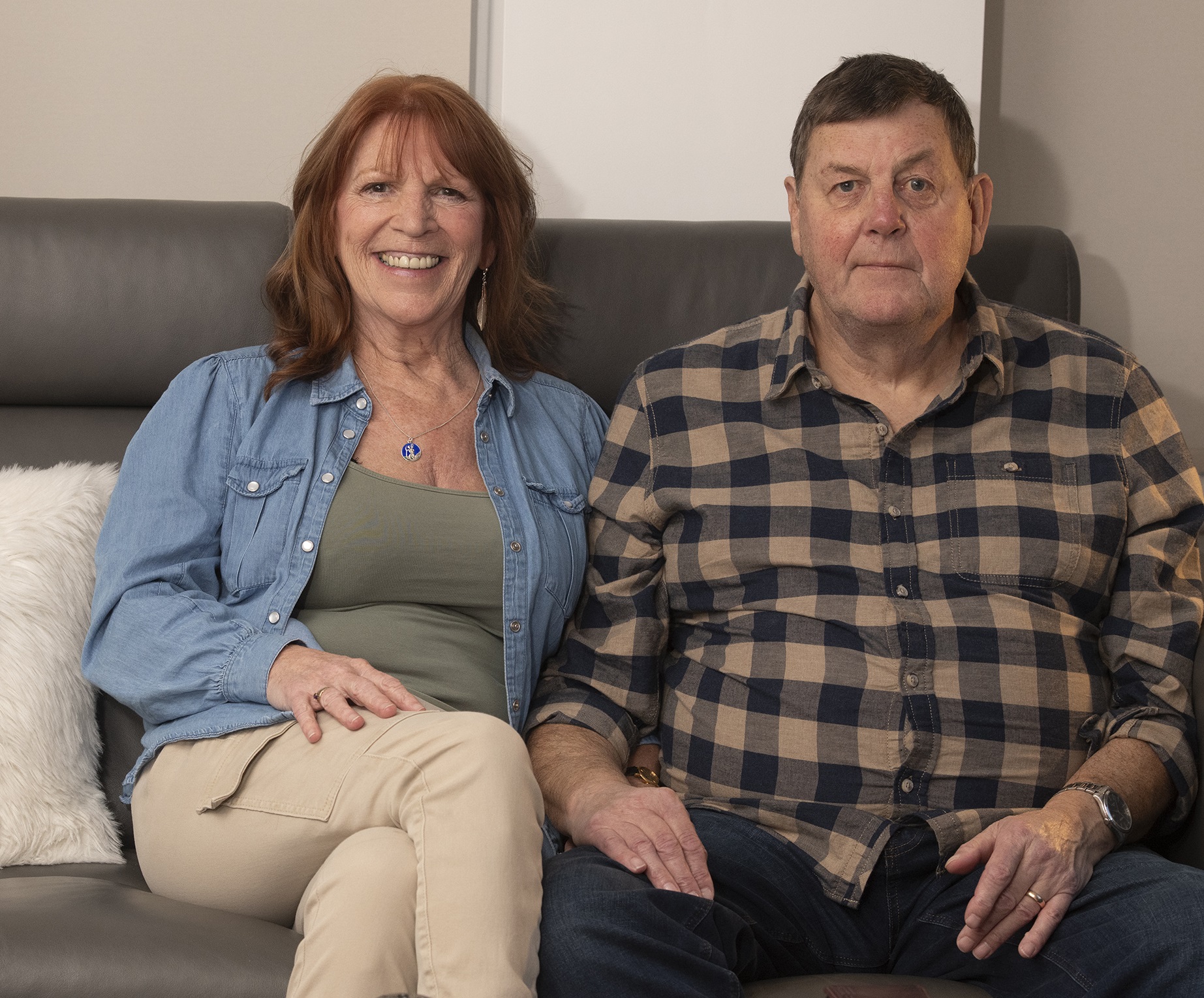Tuesday 2 January 2024
A woman with head and neck cancer has seen her tumours shrink by a third thanks to a clinical trial at the Christie NHS Foundation Trust in Manchester.
Jeanette Joyce, 64, from Northwich in Cheshire, was diagnosed with cancer in her right tonsil and soft palate (roof of the mouth) during the pandemic in May 2021, and had to undergo 33 doses of radiotherapy and two cycles of chemotherapy, which she had to go through on her own due to COVID restrictions.
Two months later (July 2021) Jeanette completed her treatment, and got the chance to ring the bell in the radiotherapy unit, to signify the end of her gruelling journey.
Over the next 12 months, Jeanette continued to recover, and attended The Christie for follow up appointments and scans.
However, incredibly, just three days after her 12-month all-clear appointment at The Christie, she was diagnosed with a completely unrelated second tumour in her left tonsil.
“I couldn’t believe I would have to go through all the treatment again. Literally, that morning, I’d posted on Facebook the video of me ringing the bell 12 months earlier to signify the end of my radiotherapy treatment, and was looking forward to getting my life back on track.”
Jeanette said.
“My life was thrown into complete turmoil.”
Devastatingly scans showed that this time the cancer wasn’t curable due to the size and location of the tumour. Cancer was also found in three other places in Jeanette’s palate. Surgery and laser removal weren’t possible, and neither was further radiotherapy, due to the short time since her previous treatment.
After scans and biopsies, doctors at her local hospital gave her the shocking news that palliative care was the only option. “I was so shocked, stunned and in disbelief” Jeannette said: “It felt like I was having an out of body experience when I was being told they couldn’t do anything more for me. It felt like I was staring into my own coffin. I even started planning the music for my funeral.”
Jeanette wasn’t willing to accept her fate and asked to be referred to The Christie where doctors said she was eligible for a phase II clinical trial which was recruiting patients. She agreed to take part in research at the National Institute for Health and Care Research (NIHR) Manchester Clinical Research Facility (CRF) at The Christie and started her first treatment on 7 December 2022. This involves having an immunotherapy drug administered through a tube in her arm every six weeks, together with an injection of a protein into her leg every three weeks. Immunotherapy helps the body’s immune system recognise and attack the cancer.
Jeanette, who is married to Dave, and ran her own transcribing business, said: “The clinical trial was the only thing left for me, so I thought, why not give it a go? I had nothing to lose. Even if it didn’t do me any good it could help others in the future. This has been a 100% positive experience for me. I’ve not experienced any side effects and I’m able to live life to the full. I can even eat anything I like, and that includes tucking into a nice juicy steak.”
She added: “I’d encourage anyone to absolutely go for it if you’re offered the chance to take part in research. Since being on the trial I haven’t looked back. My team at The Christie are truly amazing, each and every one of them are absolutely phenomenal. I may not owe them my life, yet, but I owe them the life I’ve had since my immunotherapy treatment began, I’ll be forever grateful.”
Dr Robert Metcalf, consultant oncologist at The Christie said:
“Jeanette is doing very well on this clinical trial and experiencing no side-effects, which is fantastic for her. We have seen her tumour reduced to half the size in eight months. We’re on the right trajectory so something’s working, so we’re going to stick with this treatment and see where we get to.”
He continued:
“This trial has shown some promising results with half the patients responding well. It’s still early days but we’re hopeful this drug combination could become a standard treatment for some patients with head and neck cancer in the future. We are certainly seeing immunotherapy drugs being used more routinely for head and neck cancers which is good news for patients as they are better tolerated, and less likely to result in long term side effects.”
In total 154 patients with a type of head and neck cancer (squamous cell carcinoma) that has returned, or spread to other parts of the body, will be recruited onto this global commercial trial.
Any patients interested in taking part in clinical trials should discuss this option with their consultant or GP. Not all patients will fit the criteria for a specific trial. While clinical trials can be successful for some patients, outcomes can vary from case to case. More information about taking part in clinical trials can be found here.


